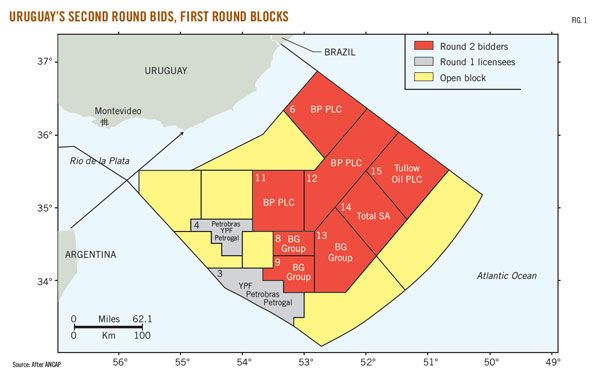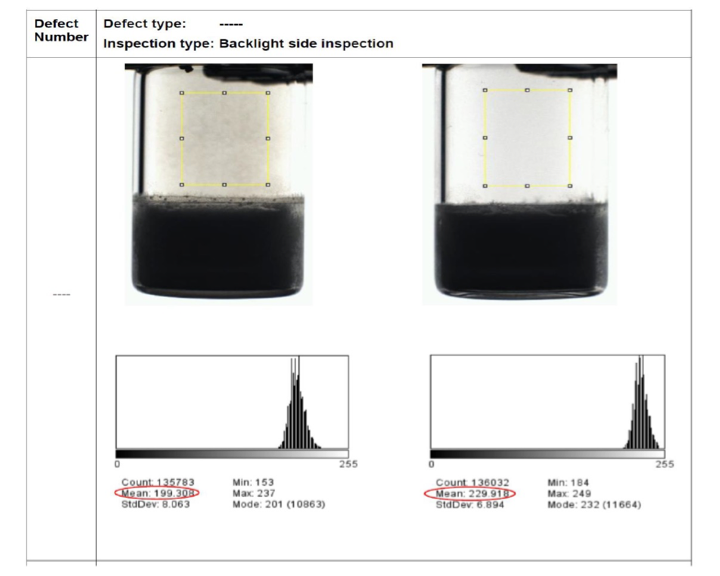Uruguay's Offshore Potential: A Focus On Black Gold Exploration

Table of Contents
Geological Promise of Uruguay's Offshore Basins
Uruguay's offshore basins hold significant promise for hydrocarbon discoveries. The country's extensive continental shelf, particularly the Pelotas and Punta del Este basins, exhibit geological characteristics favorable for the accumulation of oil and natural gas.
Sedimentary Basins and Hydrocarbon Potential
The key offshore sedimentary basins of Uruguay possess several features indicative of hydrocarbon potential:
-
Pelotas Basin: This basin, extending into Brazil and Argentina, is characterized by thick sedimentary sequences, including potential source rocks of Cretaceous and Jurassic age. Water depths range from shallow to deep, offering diverse exploration opportunities. Preliminary seismic surveys have identified potential structural traps. The basin covers an area of approximately 150,000 sq km.
-
Punta del Este Basin: Located closer to the Uruguayan coast, the Punta del Este Basin is considered to have a significant potential for hydrocarbons. It features various potential reservoir rocks and trap mechanisms, and its shallower waters may make exploration and production more cost-effective compared to the Pelotas Basin.
-
Source Rocks: Organic-rich shales within these basins are believed to be capable of generating significant quantities of hydrocarbons.
-
Reservoir Rocks: Sandstones and carbonates are identified as potential reservoir rocks capable of storing and transmitting hydrocarbons.
-
Trap Types: Structural traps, such as anticlines and fault blocks, are considered the most likely to accumulate hydrocarbons in these basins.
Regional Analogues and Exploration Success
The geological similarities between Uruguay's offshore basins and successful hydrocarbon provinces in neighboring regions, particularly Brazil's prolific pre-salt province, suggest a high potential for comparable discoveries.
-
Brazil's Pre-salt: The discovery of vast pre-salt oil reserves in Brazil, located in similar geological settings, serves as a compelling regional analogue. The similar sedimentary sequences and tectonic history increase the likelihood of discovering significant hydrocarbon reserves in Uruguay.
-
Shared Geological History: The basins share a common geological history, including similar tectonic events and sediment deposition patterns, bolstering the potential for successful exploration.
-
Proven Play Types: The success of exploration in analogous basins strengthens the case for Uruguay’s exploration potential, indicating that the necessary geological elements for hydrocarbon accumulation are present.
Regulatory Framework and Investment Climate
Uruguay has implemented a progressive regulatory framework designed to attract foreign investment and stimulate offshore oil and gas exploration.
Government Policies and Licensing Rounds
The Uruguayan government actively promotes offshore exploration through well-defined licensing rounds and attractive fiscal terms.
-
ANCAP (Administración Nacional de Combustibles, Alcohol y Portland): This state-owned enterprise plays a key role in managing and regulating hydrocarbon exploration and production in Uruguay.
-
Licensing Rounds: Uruguay has conducted several licensing rounds, granting exploration rights to international energy companies. Future rounds are anticipated, providing ongoing opportunities for investment.
-
Fiscal Regime: Uruguay offers competitive fiscal terms, including a combination of royalties, taxes, and production sharing agreements, designed to incentivize investment.
Environmental Regulations and Sustainability
Uruguay places a strong emphasis on environmental protection and sustainability in all aspects of offshore exploration and production.
-
Environmental Impact Assessments (EIAs): Rigorous EIAs are required before any exploration or production activities can commence.
-
Waste Management: Strict regulations govern the disposal of waste generated during exploration and production operations.
-
Commitment to Sustainability: Uruguay is committed to mitigating the environmental impact of hydrocarbon development and exploring opportunities for carbon capture and storage (CCS) technologies.
Opportunities and Challenges for Black Gold Exploration in Uruguay
Uruguay's offshore black gold exploration presents a compelling mix of opportunities and challenges.
Investment Opportunities and Potential Returns
The potential for significant hydrocarbon discoveries in Uruguay, coupled with a relatively low exploration risk compared to some other regions, offers significant returns on investment.
-
Large Undiscovered Resources: The large unexplored areas within the basins present considerable potential for substantial discoveries.
-
Long-Term Production Potential: Successful exploration could lead to long-term production, ensuring a stable and predictable revenue stream for investors.
-
Emerging Market Opportunity: Uruguay represents an emerging market with significant upside potential for early investors.
Technical and Logistical Challenges
Offshore exploration in Uruguay presents specific technical and logistical challenges due to the challenging environment.
-
Water Depths: The varying water depths, particularly in the Pelotas Basin, require specialized equipment and expertise for deepwater exploration.
-
Weather Conditions: The region's weather patterns, including strong winds and storms, can significantly impact operational efficiency and safety.
-
Infrastructure: Developing necessary infrastructure, including pipelines and processing facilities, will require significant investment.
Conclusion
Uruguay's offshore potential for black gold exploration presents a compelling opportunity for investors and energy companies. The favorable geology, supportive regulatory framework, and potential for significant discoveries make it an attractive emerging market. While technical and logistical challenges exist, the potential rewards outweigh the risks. Further exploration and investment in Uruguay's offshore basins are crucial to unlocking its full potential and ensuring energy security for the nation. Learn more about the opportunities in Uruguay's burgeoning black gold exploration sector today!

Featured Posts
-
 Onex Sells 25 West Jet Stake To Foreign Airlines Recouping Investment
May 11, 2025
Onex Sells 25 West Jet Stake To Foreign Airlines Recouping Investment
May 11, 2025 -
 Optimization Strategies For Automated Visual Inspection Of Lyophilized Vials
May 11, 2025
Optimization Strategies For Automated Visual Inspection Of Lyophilized Vials
May 11, 2025 -
 New Calvin Klein Campaign Lily Collins Stunning Photos
May 11, 2025
New Calvin Klein Campaign Lily Collins Stunning Photos
May 11, 2025 -
 The Ultimate Guide To Mtv Cribs Best Mansions
May 11, 2025
The Ultimate Guide To Mtv Cribs Best Mansions
May 11, 2025 -
 Mtv Cribs A Tour Of Extravagant Homes
May 11, 2025
Mtv Cribs A Tour Of Extravagant Homes
May 11, 2025
